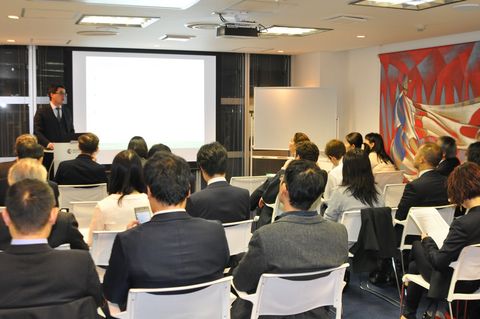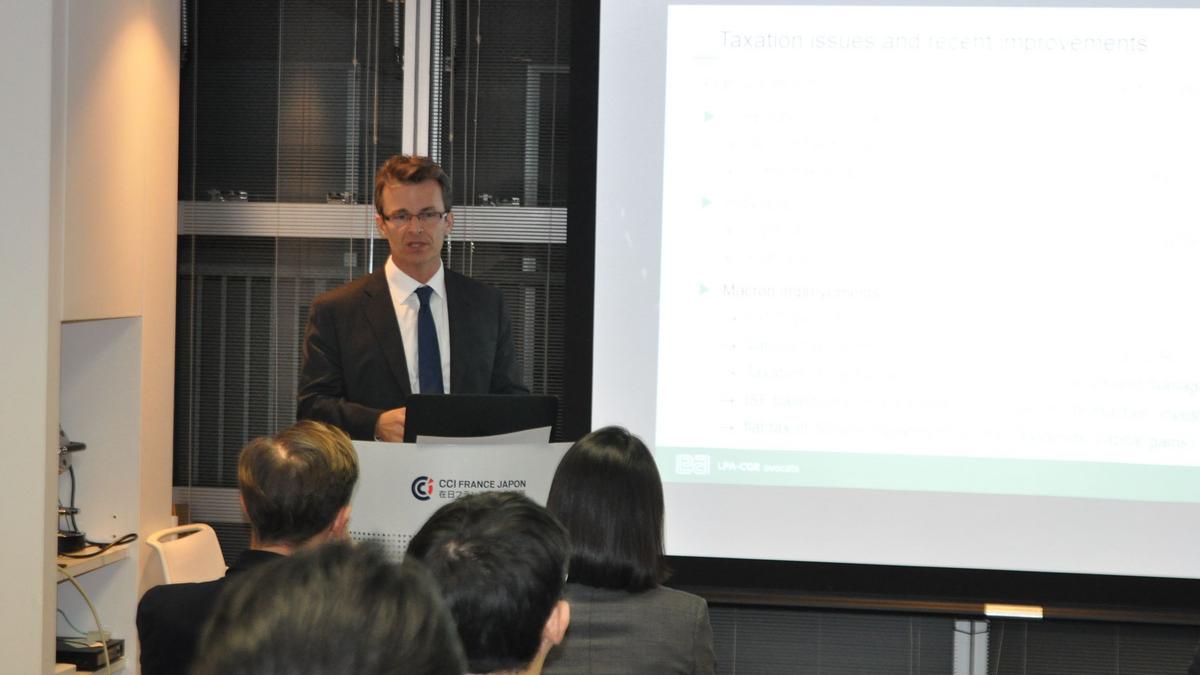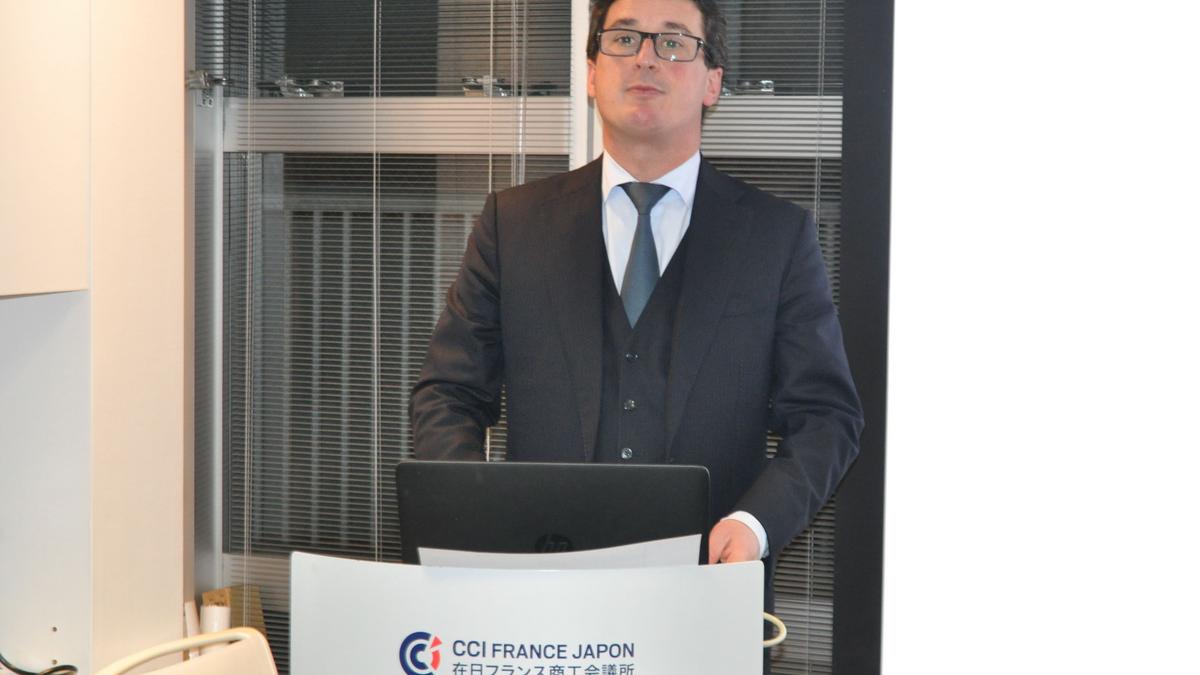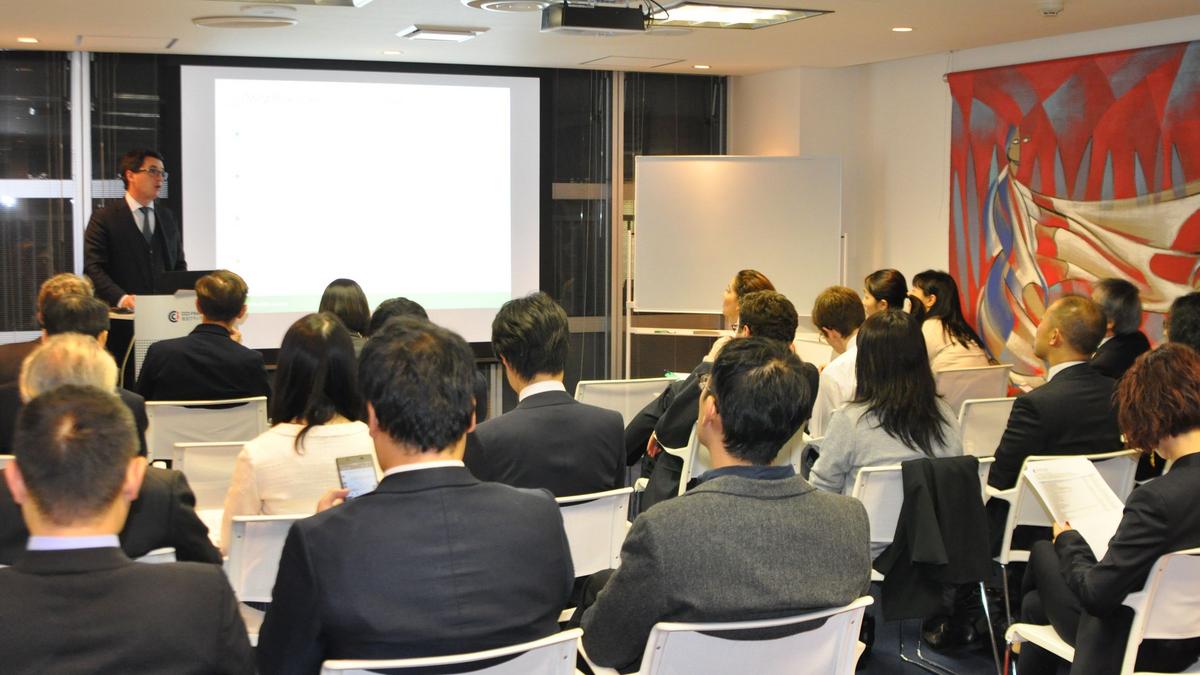Bilans d’évènement • Comités
France’s legal reforms reinforce its business attractiveness for foreign investors

On November 9, 2017, the CCI France Japon in Tokyo welcomed Raphaël Chantelot and Emmanuel Tricot, Partners, and Catherine Gaillarde and Airi Tozaki, Associates, from the Paris Law Office LPA-CGR avocats (formerly named Lefèvre Pelletier & Associés) – the only French law firm established in Japan – for their conference on the French regulations impacting the investments and businesses of Japanese and foreign companies in France.
Contractual arrangements such as distribution agreements, commercial agents and franchising give foreign companies easy access to the French market. Distribution contracts are easy to implement in France. They can be concluded on an exclusive or nonexclusive basis. Minimum resale prices or minimum margins cannot be binding on the distributor, but it is possible for the supplier to recommend prices to his distributor, or to fix maximum resale prices. Hiring commercial agents is a flexible and inexpensive way to test the market, and franchising is commonly used to build a distribution network in France. When doing business in France from Japan, Raphaël Chantelot recommends to designate the French law as the law applicable to the contract, instead of the Japanese law, in order to ensure its enforcement. He also recommends to register one’s intellectual property assets before the launching of the business in France.
When setting up a business in France, several options are available depending on the investment goal and strategy. One option consists in establishing a representative or liaison office, which is easy to set up, under the restriction that it cannot perform any commercial activity. In order to carry out operations, the other option consists in creating a branch. In this case, the parent company remains liable and subject to full taxation in France on behalf of its branch. Another option consists in creating a subsidiary – a Limited Liability Company (“SARL”) for small operations, a Joint Stock Company (“SA”) for large businesses, or its more flexible alternative: a Simplified Joint Stock Company (“SAS”), which is highly recommended. The latter is a flexible corporate organization which can be created with only one shareholder, a president and a share capital of one euro. All things considered, the quickest way to develop one’s operations in France would be to acquire a local company, especially since prior governmental filing is no longer required for foreign investments in France.
Foreign investors may be concerned about the complexity of French labor laws, but significant improvements have been made since the recent election of the new French President and already implemented since September 2017: termination process has been simplified, termination grounds for economic dismissal are now more reasonable, and indemnification fees for unfair dismissal have been reduced and are more predictable. There are yet more improvements to be expected in the years to come for tax matters, as the Corporate Income Tax (CIT) will be reduced to 25% by 2022 (meaning an 8% decrease as opposed to the current applicable rate), the taxation of capital gains for entrepreneurs and managers lightened, the Impôt sur la Fortune (wealth tax) based on real estate only and no longer on productive investments, and last but not least, investment income (dividends, capital gains) will have a flat tax rate of 30%. Also, the provisions of the France Japan tax treaty will remain in force: no withholding tax is applicable for dividends distributed by a subsidiary based in France to its parents company based in Japan, holding directly or indirectly at least 15% of the subsidiary’s issued shares.
As a way of concluding the seminar, Emmanuel Tricot focused on three currently “hot topics” in France, including the new anti-corruption LoiSapin 2 regulations, the EU General Data Protection Regulation (GDPR) and the deregulation of some markets. For more details, please download the conference’s slides by clicking here.



